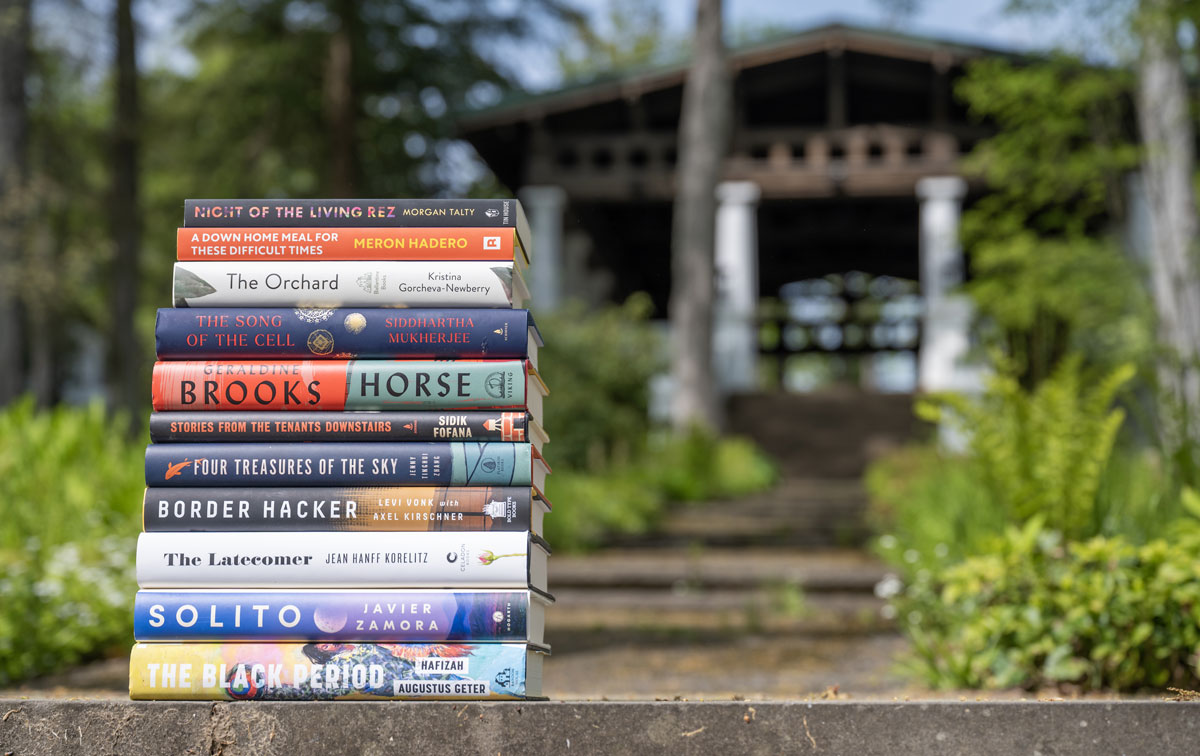CHAUTAUQUA, N.Y. — Chautauqua Institution is pleased to announce 11 exceptional books as the 2023 finalists for The Chautauqua Prize, now in its 12th year:
- The Black Period: On Personhood, Race, and Origin, by Hafizah Augustus Geter (Random House)
- Border Hacker: A Tale of Treachery, Trafficking, and Two Friends on the Run, by Levi Vonk with Axel Kirschner (Bold Type Books)
- A Down Home Meal for These Difficult Times: Stories, by Meron Hadero (Restless Books)
- Four Treasures of the Sky: A Novel, by Jenny Tinghui Zhang (Flatiron Books)
- Horse: A Novel, by Geraldine Brooks (Viking Books)
- The Latecomer: A Novel, by Jean Hanff Korelitz (Celadon Books)
- Night of the Living Rez: Stories, by Morgan Talty (Tin House)
- The Orchard: A Novel, by Kristina Gorcheva-Newberry (Ballantine Books)
- Solito: A Memoir, by Javier Zamora (Hogarth)
- The Song of the Cell: An Exploration of Medicine and the New Human, by Siddhartha Mukherjee (Scribner)
- Stories From the Tenants Downstairs, by Sidik Fofana (Scribner)
These 11 books represent the largest group of finalists ever selected for the Prize, from a yet-again record-breaking number of submissions from publishers, agents and authors. Awarded annually since 2012, The Chautauqua Prize draws upon Chautauqua Institution’s considerable literary legacy to celebrate a book that provides a richly rewarding reading experience and to honor the author for a significant contribution to the literary arts. The winning book will be selected from these finalists and announced in early June.
In a work combining memoir, history, political analysis, cultural criticism and Afrofuturist thought, the acclaimed poet Hafizah Augustus Geter sets out to reclaim her origin story with The Black Period: On Personhood, Race, and Origin — the winner of the PEN Open Book Award and finalist for the Lambda Literary Award. As Geter maps out her own narrative of becoming — in a world not built to accommodate diverse identities — she leans into her parents’ lessons on the art of Black revision to create a space for the beauty of Blackness, Islam, disability and queerness to flourish. Readers for The Chautauqua Prize celebrated Geter’s “unapologetic, straightforward voice” — finding it both specific and varied — “sometimes lyric and other times almost didactic; sometimes scientific and other times philosophical; sometimes deeply personal and other times global,” providing nuance and insight. With an evocative voice — particularly in narration and sense of place — Geter takes her reader “on a journey that transcends all preconceived ideas,” one reader noted. Another described The Black Period as a “beautifully written memoir,” and Geter as a “masterful … accomplished storyteller.”
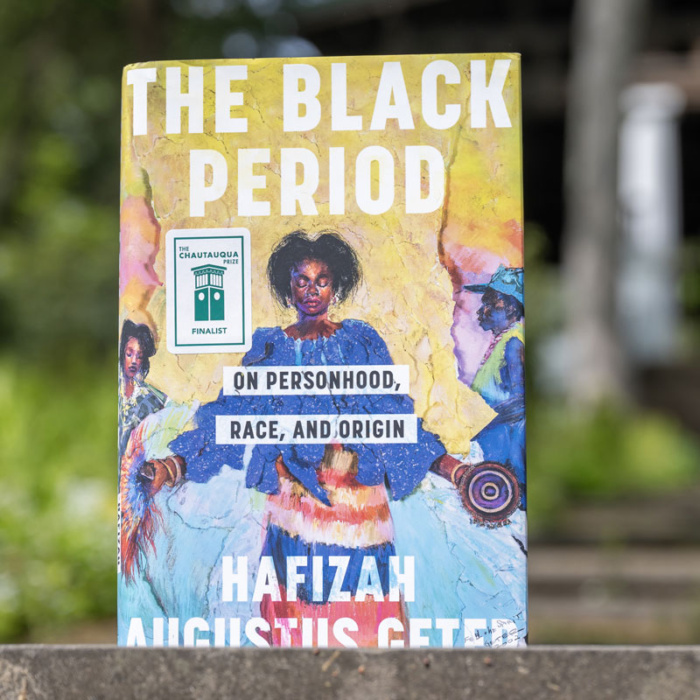
With Border Hacker: A Tale of Treachery, Trafficking, and Two Friends on the Run, anthropologist and journalist Levi Vonk traces a dramatic odyssey catalyzed by a chance encounter and an unlikely friendship. Axel Kirschner was a lifelong New Yorker, and undocumented. After a minor traffic violation, he was deported to Guatemala; while fighting his way back through Mexico on a migrant caravan, Kirschner met Vonk, who soon learned the migrant harbored a secret. Kirschner was a hacker — and while those skills gave him an edge in a system that denied his existence, they would also ensnare him in a tangled underground network of human traffickers, corrupt priests and anti-government guerillas eager to exploit his talents for their own ends. In his book, written with Kirschner himself, Vonk reveals the impact and violence that U.S. immigration policies have far beyond our borders. Readers called Border Hacker “a heartbreaking adventure” and “one of the most fascinating books I have ever read.” “The quality of the writing and the story telling is exceptional,” one reader said. “… The book is a suspenseful page turner and a compassionate telling of a seemingly impossible story.”

Winner of the 2020 Restless Books Prize for New Immigrant Writing and the 2021 AKO Caine Prize for African Writing, Ethiopian-American author Meron Hadero’s stories in A Down Home Meal for These Difficult Times offer compelling narratives of those whose lives have been marked by border crossings and the risk of displacement. This collection follows characters on the journey toward home, which they dream of, create and redefine, lose and find and make their own — and examines themes of race, gender, class, friendship and betrayal, the despair of loss and the enduring resilience of hope. A Down Home Meal for These Difficult Times, one reader noted, is “a wonderful series of affecting, insightful portraits … written in beautiful, powerful prose” that is in turns “biting, clear-eyed, thoughtful, and witty.” Hadero is a “tremendous storyteller” who “has thought deeply and expressed beautifully her characters’ own complicated inner human issues of connection, loss, home, and new beginnings. The stories feel fresh” and “the language is lyrical.” Ultimately, the collection “is about the power of place” and the questions of how places shape us are “at the heart of this fantastic book by a fantastic young author.”

A debut set against the backdrop of the Chinese Exclusion Act, about a Chinese girl fighting to claim her place in the 1880s American West, Jenny Tinghui Zhang’s Four Treasures of the Sky: A Novel is steeped in untold history and folklore. Readers follow the heroine Daiyu, kidnapped from rural China at 13 years old, to a calligraphy school, to a San Francisco brothel, to a shop tucked into the Idaho mountains, as she tries to outrun the tragedy that chases her, continually reinventing herself to survive. As anti-Chinese sentiment sweeps across the country in a wave of unimaginable violence, Daiyu must draw on each of the selves she has been ― including the ones she most wants to leave behind ― to finally claim her own name and story. Four Treasures of the Sky, Prize readers shared, felt timely and relevant in its scope; one noted in particular Zhang’s vivid, “wonderful descriptions” in identifying with the characters. “What stands out the most in this novel is the prose,” another wrote. “It is beautiful and poetic and such a pleasure to read.” Zhang’s book is “absolutely fascinating and deeply meaningful.”

From Pulitzer Prize winner Geraldine Brooks comes Horse: A Novel, a winner of this year’s Anisfield-Wolf Book Award in fiction. Based on the remarkable true story of the record-breaking thoroughbred Lexington, Horse is a novel of art and science, love and obsession, and our unfinished reckoning with racism, from the antebellum South to present day. Brooks, “so skilled in writing historical fiction, imaginatively weaves the story of Lexington the racehorse and Jarret,” the enslaved man who cares for and trains the thoroughbred — and grows up alongside him. Other readers lauded Brooks as a “brilliant writer” and Horse as a “a highly readable and vivid story — the author is very skilled at plotting and her language often soars.” But most impressive, one reader said, was how “Brooks pushes beyond history” in creating two contemporary characters and interweaves characters’ stories across centuries to pose critical questions. Can art help people deal with social wrongs? How does “ownership” of any living being — whether a person or a horse — distort our moral vision? What does it mean to be “free”? Simply put, a reader said, “I don’t know any comparable novels.”
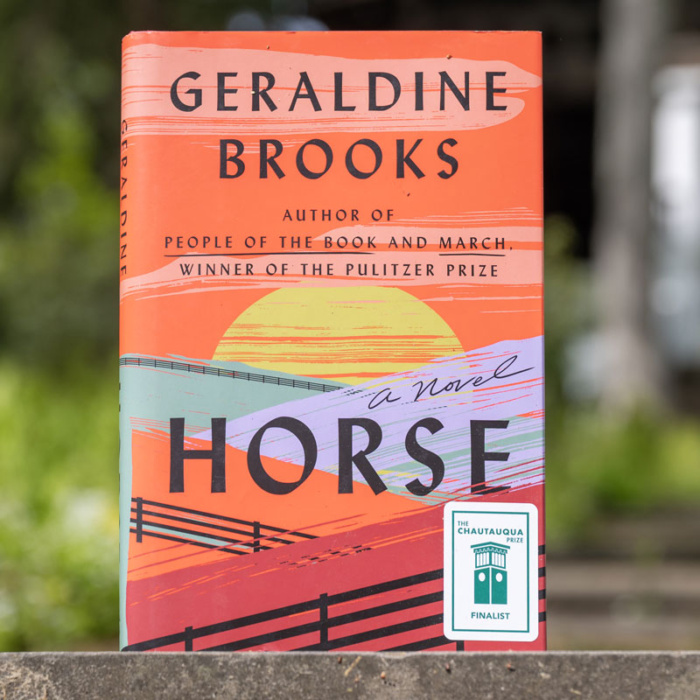
Jean Hanff Korelitz’s The Latecomer: A Novel is a layered and immersive work about three siblings, desperate to escape one another, and the upending of their family by the late arrival of a fourth. It is the story, told over decades, of the wealthy Oppenheimer family — from the first meeting of parents Salo and Johanna, to their triplets born during the early days of IVF. As children, the triplets feel no strong familial bond, while their father grows more distant and their mother grows more desperate. Faced with being truly alone as the triplets leave for college, Johanna decides to have a fourth child: the titular “latecomer.” Through the Oppenheimers, Korelitz explores numerous aspects of collective and individual identity, and a Prize reader described The Latecomer as a “satisfying old-fashioned novel with a 21st-century sensibility” and “a wry sense of humor.” Korelitz, another said, is “an extremely talented writer” whose “ability to spin a story is her greatest strength.” In a novel that builds slowly and deliberately, one reader noted that the pacing allows for appreciating the quality of the prose. “Now that I have finished,” they said, “it stays with me.”
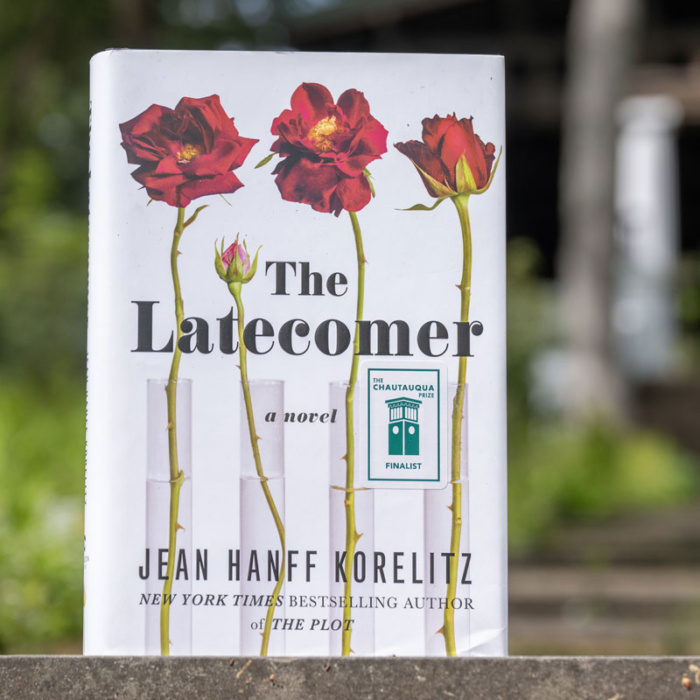
Morgan Talty’s Night of the Living Rez: Stories has won the PEN/Robert W. Bingham Prize, the National Book Critics Circle John Leonard Prize, the American Academy of Arts & Letters Sue Kaufman Prize and The New England Book Award. Set in a Native community in Maine, Talty’s debut collection examines what it means to be Penobscot in the 21st century and what it means to live, to survive, and to persevere after tragedy. In 12 stories, Talty — a National Book Foundation 5 Under 35 Honoree — brings humor, compassion and deep insight into a community as it struggles with a painful past and an uncertain future. “Talty creates an entire world with these tales, each of which stands on its own,” according to one Prize reader. “Better yet, however, they weave together to create a world for us to enter — the world of what it means to be Native in our times. With startling skill, Talty threads these separate tales with characters who interconnect, often in surprising ways.” “The voice is strong, the characters compelling,” one wrote, and “the writing is clear and authoritative, the images vivid.” Added another: “An important read.”
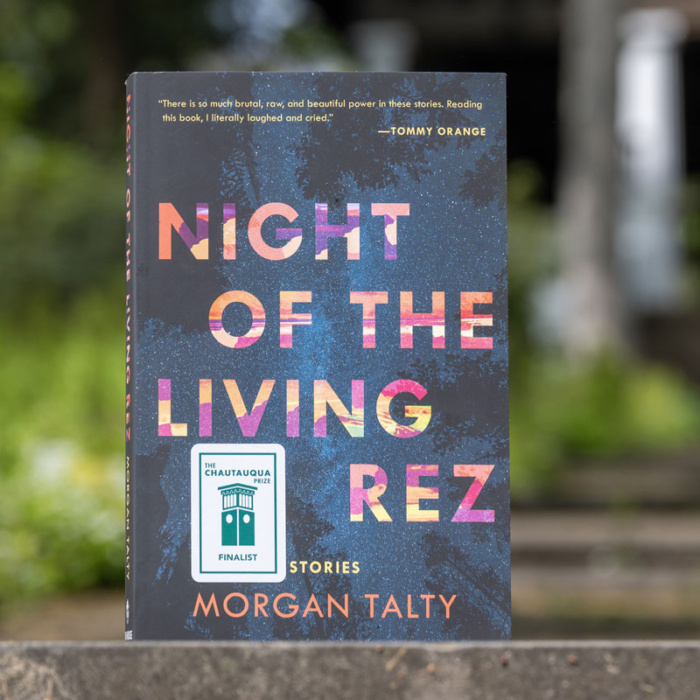
In Kristina Gorcheva-Newberry’s debut The Orchard: A Novel, four inseparable friends — Anya, Milka, Trifonov and Lopatin — are coming of age in the USSR in the 1980s, trying to envision a free and joyful future for themselves. By the time they’re 15 years old, the Soviet Empire is on the verge of collapse, and the fleeting time they have together is cut short by a sudden tragedy. Years later, Anya returns to Russia from America and comes to the stark realization that memory does not fade or disappear; rather, it moves us across time, connecting our past to our future, joys to sorrows. Inspired by The Cherry Orchard, Gorcheva-Newberry’s work is not just a “deft homage to Anton Chekov but a terrific personal reflection,” one reader noted. The echoes of the Russian literary giant create “a resonant underpinning, yet in no way is this work derivative.” “Poignant,” “moving,” “beautiful,” “breathtaking” and “gorgeous” were all oft-repeated words from Prize readers. “As a literary work, it shines,” said one. Gorcheva-Newberry is “both a consummate storyteller and a lyrical writer,” who has written a timely book that has “much to offer.”
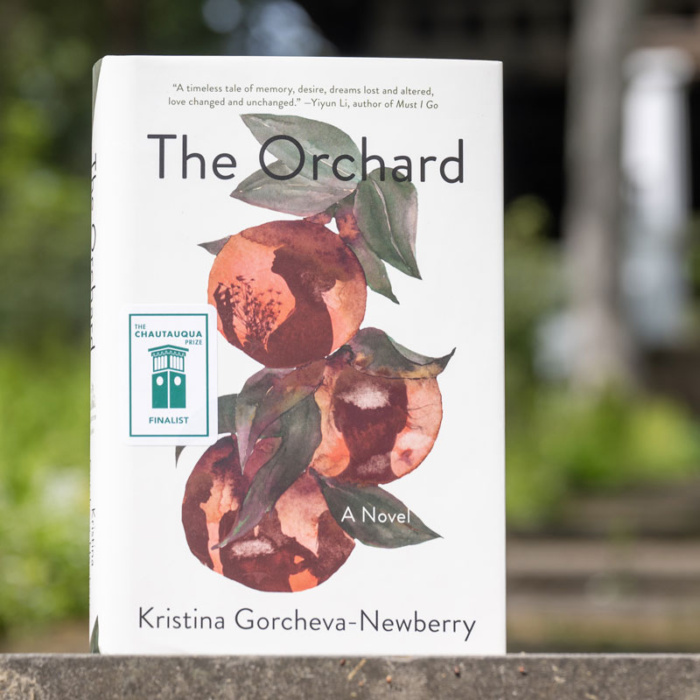
In Solito: A Memoir, Javier Zamora takes readers along a 3,000-mile journey from his small town in El Salvador, through Guatemala and Mexico and across the U.S. border. At 9 years old, Zamora leaves behind his beloved aunt and grandparents to reunite with a mother who left four years ago and a father he barely remembers. Alone amid a group of strangers, Javier expects his trip to last two short weeks; it takes two months. He cannot foresee the perilous boat trips, relentless desert treks, pointed guns, arrests and deceptions that await him; nor can he know that his fellow migrants will come to encircle him like an unexpected family. The winner of the Los Angeles Times Christopher Isherwood Prize for Autobiography and the American Library Association Alex Award, Solito is Zamora’s story, but it’s also the story of millions of others who had no choice but to leave home. Prize readers gravitated to Zamora’s narration and the “inspiring first-hand description” of his experience, with details harrowing and vivid. Solito, one wrote, came with their “highest recommendation,” and is “written in a compelling style that will not let you stop reading until the last page.”
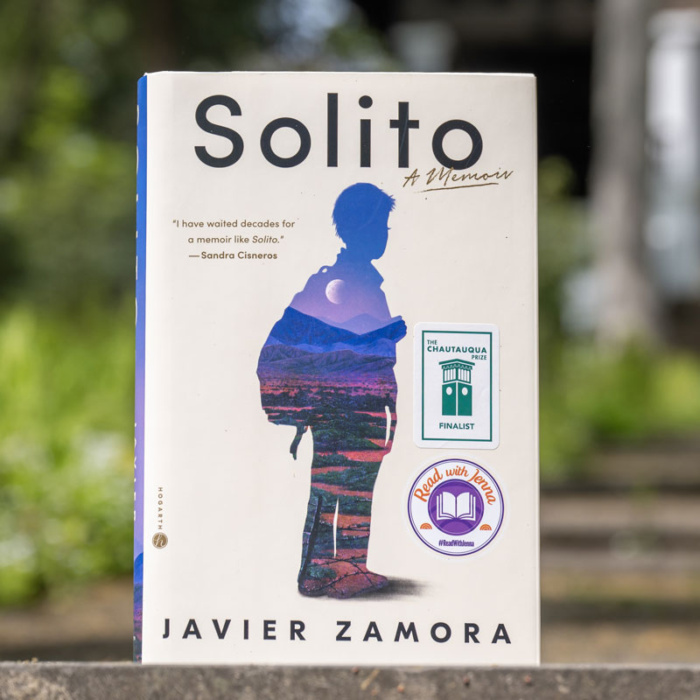
Siddhartha Mukherjee’s latest, The Song of the Cell: An Exploration of Medicine and the New Human, begins in the late 1600s. The Pulitzer Prize-winning author introduces us to English polymath Robert Hooke and Dutch cloth-merchant Antonie van Leeuwenhoek, who looked down their handmade microscopes and saw something that introduced a radical concept that altered biology and medicine forever. It was the fact that complex living organisms are assemblages of tiny, self-contained, self-regulating units — “cells,” Hooke christened them — that build our organs, our physiology and our selves. Winner of the 2023 PROSE Award for Excellence in Biological and Life Sciences, The Song of the Cell tells the story of how scientists discovered cells, began to understand them, and are now using that knowledge to create new humans. In his exploration — both panoramic and intimate — of what it means to be human, Mukherjee uses his expertise to make “a very important and complex topic accessible,” one Prize reader said. “Mukherjee is a phenomenal writer and storyteller,” another shared, who, in his “wonderful book,” “ … has a way of explaining concepts in an interesting way that entices one to keep reading.”
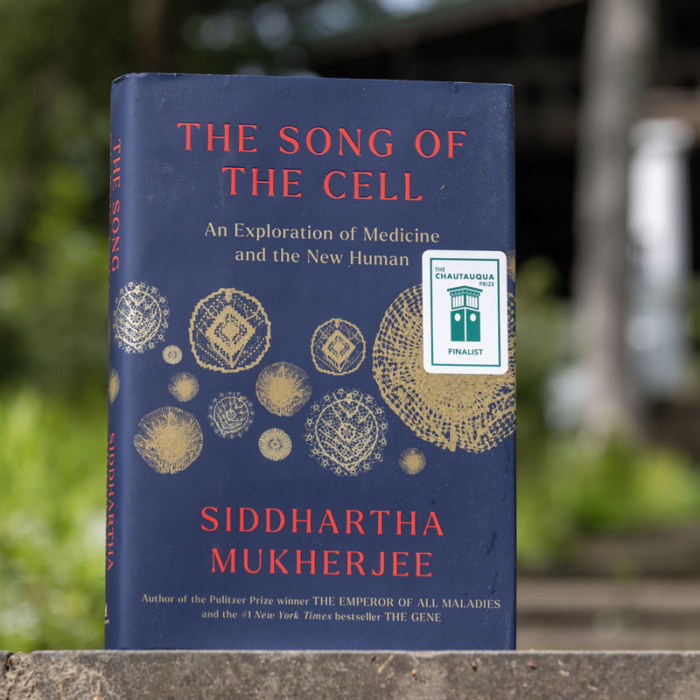
In the eight interconnected pieces of Stories From the Tenants Downstairs, Sidik Fofana conjures Banneker Terrace, a residential community under pressure, where everybody knows everybody — or at least knows of them. In this Gotham Book Prize-winning collection, longtime tenants’ lives are entangled together in the ups and downs of the day-to-day. As the tight-knit cast of characters weave in and out of one another’s narratives, they grapple with their own personal challenges while the forces of gentrification threaten to upend life as they know it. Each story feels unique but together they are united, one Prize reader noted, and the collection is singular and surprising in its approach — largely due to the varied narration story-to-story. “Among Fofana’s considerable gifts as a writer is his ability to write using multiple voices which are actually distinct — from each other and from other fictional characters,” said one reader, who shared that it was a privilege to be pulled so close to Fofana’s character. “This is an extraordinary book in my estimation,” a reader said, “one I will reread multiple times with pleasure.”
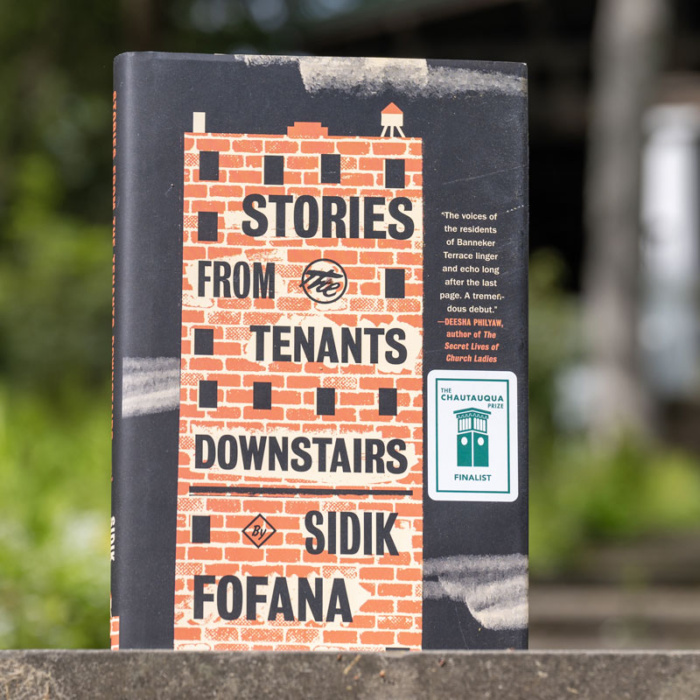
ABOUT THE CHAUTAUQUA PRIZE
Awarded annually since 2012, The Chautauqua Prize draws upon Chautauqua Institution’s considerable literary legacy to celebrate a book that provides a richly rewarding reading experience and to honor the author for a significant contribution to the literary arts. The author of the winning book will receive $7,500, and will participate in a Prize ceremony and reading on the grounds of Chautauqua Institution during the 2023 Summer Assembly Season. For more information, visit prize.chq.org.
ABOUT CHAUTAUQUA LITERARY ARTS
With a history steeped in the literary arts, Chautauqua Institution is the home of the Chautauqua Literary and Scientific Circle, founded in 1878, which honors at least nine outstanding books of fiction, nonfiction, essays and poetry with community discussions and author presentations every summer. Further literary arts programs at Chautauqua include the Chautauqua Writers’ Festival —which convenes writers each June in workshops, panels, and other conversations that draw fruitful and urgent connections between the personal, the political and the craft of writing — as well as the summer-long workshops, craft lectures and readings from some of the very best author-educators in North America at the Chautauqua Writers’ Center. Chautauqua Literary Arts is led by the Michael I. Rudell Director of the Literary Arts, an endowed chair established in memory of a beloved Chautauquan who, among other things, inspired Chautauqua’s first literary award, The Chautauqua Prize.
ABOUT CHAUTAUQUA INSTITUTION
Chautauqua Institution is a community on the shores of Chautauqua Lake in southwestern New York state that comes alive each summer — and year-round through the CHQ Assembly online platforms — with a unique mix of fine and performing arts, lectures, interfaith worship and programs, and recreational activities. As a community, we celebrate, encourage and study the arts and treat them as integral to all of learning, and we convene the critical conversations of the day to advance understanding through civil dialogue.
